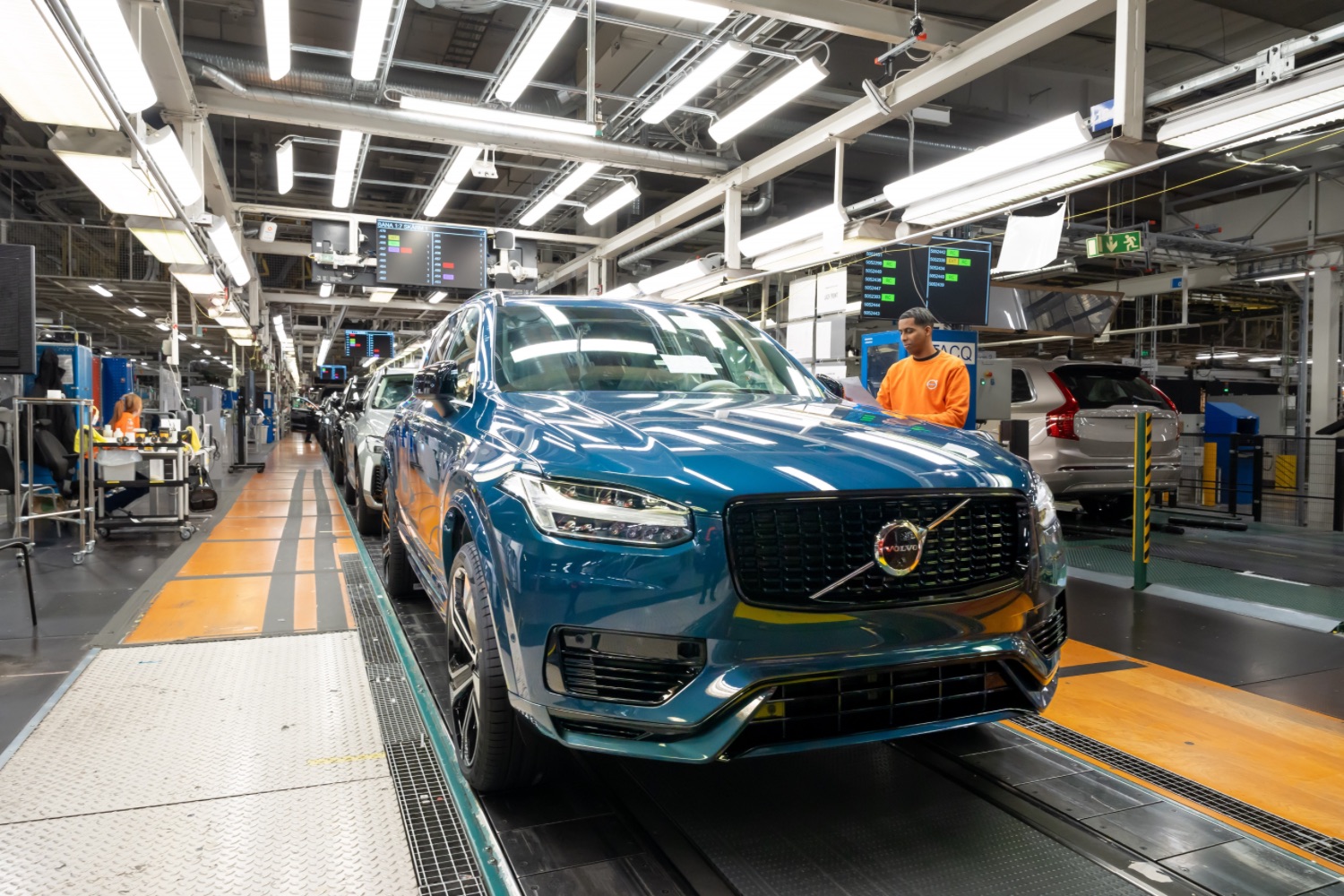Volvo says that it has built its last diesel-engined car, a V60 estate, which just rolled off the production line in Ghent, Belgium. As Volvo puts it, the event took place on a 'cloudy Thursday afternoon' just days after its last Swedish-built diesel-engined car - an XC90 - came off the line at Torslanda, Sweden.
Only electric and PHEV now
The final diesel production run means that Volvo is now an entirely electrified brand - it still offers the V60, the XC90 (which will continue in production alongside the all-electric EX90 for a while yet), and the XC60 as plug-in hybrids, while the recently-renamed EX40 and EC40 (neé XC40 and C40) are now fully electric only, alongside the electric-from-birth EX30 and EX90. Volvo still sells some mild-hybrid petrol models in a few other markets, but those don't appear on Irish price lists.
Volvo is culling diesel models as part of its plan to become a net-zero greenhouse gas emissions company by 2040.
'Bread and butter'

Not that Volvo is ashamed of its diesel past. Far from it - according to the company: "For a long time, our diesel engines were synonymous with reliability and efficiency, and they meant a great deal to us for many decades. Indeed, the success of our diesel cars played a significant role in our evolution into a premium brand. In recent years, the electric revolution has evolved quicker than most of us could have imagined - and it's largely propelled by tightening regulations around tailpipe emissions, as well as customer demand in response to the climate crisis and a desire for cleaner urban air. Only five years ago, the diesel engine was our bread and butter in Europe, just like it was for most other car makers. The majority of the cars we sold in Europe in 2019 ran on diesel, while electric models were just starting to gain traction."
Now, that's all changed, and according to Volvo, it increased its sales of fully-electric models by 70 per cent last year.
Volvo actually only started making diesel-engined cars in 1979 in response to what it says was customer demand for more efficient long-haul engines, and so the 244 GL D6 was born, which features the first-ever six-cylinder diesel engine in a passenger car (the engine was actually bought-in from Volkswagen).
It was only in 2001 that Volvo first introduced a home-made diesel engine, with the launch of the inline-five-cylinder engine in the then-new V70. The engine has becomes a huge success, not just with customers but even on the race track (it's used in the S60 Challenge racing series) and on the water, as Volvo Penta makes a marine engine out of it.
1,300km on a tank
By 2008, Volvo is making lots of diesel engines, including a 1.6-litre turbo-diesel four-cylinder engine shared with its then-partner Ford. Fitted to the S80 saloon, among others, this incredibly frugal engine, helped by Volvo's 'Drive-e' technology and some clever aerodynamics, can run for as much as 1,300km on a full tank
In 2012, Volvo launched the V60 D6, reviving the original diesel engine badge from the 244 but with a plug-in hybrid twist. This rare machine - few companies have made plug-in hybrid diesels - claimed a 50km electric range and a range of up to 1,100km on combined petrol and diesel. Not only that but it had a brisk 0-100km/h time of 6.2 seconds, allowing Volvo to claim that it was "electric, hybrid and a muscle car all at once."
In 2013, Volvo launched what would be its last diesel engine design - a highly efficient 2.0-litre four-cylinder unit that would come in a variety of power outputs and found homes in the likes of the XC90, V60 and S90, among others. This is the engine that would, this very week, see Volvo out of diesel-engined production. As a mark of finality, Volvo has now sold its stake in Aurobay, the combustion engine joint venture company we have together with Geely Holding (Geely being, of course, the massive Chinese carmaker which owns a majority stake in Volvo).





